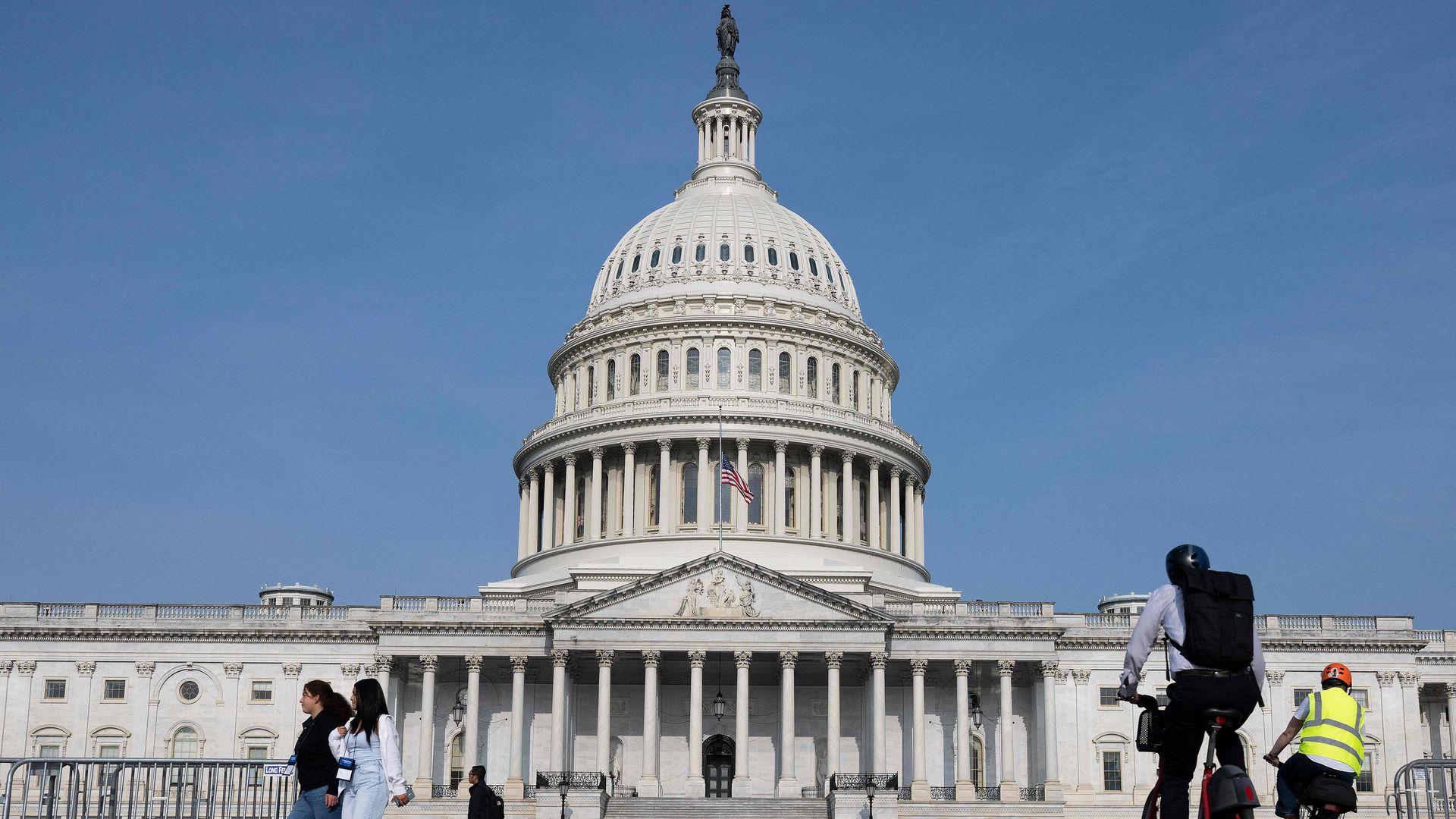U.S. at "significant risk" of default in first two weeks of June, CBO says
Add Axios as your preferred source to
see more of our stories on Google.

The U.S. Capitol in Washington, D.C., on May 11. Photo: Jim Watson/AFP via Getty Images
The Congressional Budget Office (CBO) warned on Friday that the U.S. is at "significant risk" of default on its debt for the first time in history "in the first two weeks of June" unless Congress and the Biden administration act to raise the country's debt ceiling.
Why it matters: Republicans and Democrats have been deadlocked over raising the debt ceiling for months, and the two parties remain far apart.
- Republicans have been demanding that a raise to the debt ceiling must be paired with spending cuts, which Democrats and President Biden have opposed.
Driving the news: House Speaker Kevin McCarthy (R-Calif.), despite skepticism from fellow Republics about the early June default, has embraced June 1 as a hard deadline for a raise, using the date to ramp up pressure on Biden.
- Treasury Secretary Janet Yellen has previously said the U.S. may be unable to fulfill all of its financial obligations beginning June 1 without a debt ceiling raise, but her warning was met with skepticism from some Senate Republicans.
How it works: The debt ceiling does not control how much the government spends. That's Congress' responsibility.
- Instead, the ceiling determines the fixed amount of debt the government can have outstanding at one time, meaning that if the Treasury can't take on additional debt to pay off expenses previously enacted by Congress and presidents of both parties, the country will default.
The exact consequences of a U.S. default are unknown, though Yellen and others have warned it could cause irreparable damage to the U.S. economy and global financial markets, potentially setting off a self-inflicted fiscal crisis.
- Republicans and Democrats worked together to raise the borrowing limit three times throughout the Trump administration and several times in other previous administrations.
The bottom line: The CBO's warning on Friday further contextualized when the U.S. could possibly default without a raise, though predicting the exact date is difficult.
- It said the country's current debt limit of $31.4 trillion was reached on Jan. 19, 2023, and that if the limit is not raised, "there is a significant risk that the Treasury will run out of funds at some point in the first two weeks of June."
- The CBO also adjusted its projection for the federal deficit this year to $1.5 trillion, up $0.1 trillion from its February estimate.
Editor's note: This story has been updated with additional details throughout.
